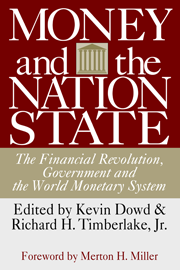| The Wall Street Journal published a slightly edited version of this letter on January 18, 2000. Professors Hanke’s related Jan. 11 letter to the WSJ is also published on this website. |
Dear Sir:
On Sunday, Jan. 9, President Jamil Mahuad announced that Ecuador would dump its currency, the sucre, and dollarize its economy. In “Beauty of A Parallel Currency” (Letters Jan.11), I concluded that President Mahuad’s overture was desirable and technically feasible but that its political viability remained in doubt. The WSJ’s editorial of Jan. 13, “Dollar Jamil,” reached similar conclusions. Other observers have expressed different opinions about the desirability and feasibility of dollarization in Ecuador.
Is there an objective metric indicating which opinions are “correct”? Yes. Market prices. Indeed, every market price is nothing more than a tally of votes made by buyers and sellers after weighing the competing information.
In Ecuador’s case, the interbank borrowing rate—the price at which banks bid for and offer deposits to other banks—endorsed dollarization. That rate was 152% before President Mahuad’s announcement, and less than twenty-four hours after his declaration it had tumbled to 25%.
Much the same occurred in early 1998, when former President Suharto accepted my currency board proposal as a means to stabilize the Indonesian rupiah. During that episode, the Clinton administration, the IMF and most pundits asserted that a currency board was neither desirable nor feasible. The WSJ’s editorial page and Forbes magazine were lonely voices on the other side, and they were “correct.” Rupiah interest rates in the offshore swap market fell sharply on the prospect of an Indonesian currency board, indicating that buyers of rupiah-denominated assets were willing to accept lower yields than before the currency board proposal. In short, the markets indicated that the currency board would work and would be viable for at least five years, the duration of the longest-dated interest rate swaps.
Unfortunately, the Clinton administration and the IMF imposed their will and the currency board idea was abandoned. Now the Bank of Indonesia is in ruins—technically insolvent—something that would have been impossible under a currency board setup. To reestablish the BI’s solvency, either Indonesian tax payers will have to refill the BI’s vaults with hard earned cash or the BI will have to hyperinflate the rupiah. In either case, the Indonesians are going to have to take a few more lumps.
Sincerely yours,
Steve H. Hanke
Professor of Applied Economics
The Johns Hopkins University
Baltimore, Maryland









